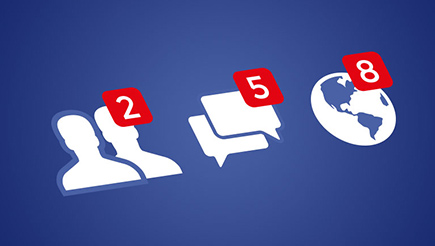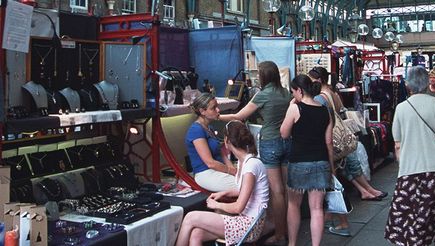With rapidly changing customer expectations, constantly improving technology and more choice than ever, consumers are demanding simplicity from brands more than ever before.
To find out what brands are successfully keeping it simple for their customers, and why simplicity is such a valuable driver for consumer behaviour, brand consultancy agency Siegel+Gale compiled the World’s Simplest Brands 2018-2019 report.
For the study, Siegel+Gale asked more than 15,000 people across nine countries across the world to evaluate brands and industries on their simplicity, rating them on factors like how clear a brand’s identity is, how easy its services are to use, and how honest and trustworthy customers perceive the company to be.
The results reveal a lot about what matters to customers and why simplicity is a big factor in success. So read on to find out what can your business learn from these big-but-simple brands.
Simplicity pays
The Simplicity report revealed some key information about what matters most to consumers and what they expect from a business.
According to the report, 55% of consumers are willing to pay more for ‘simpler experiences’, and 64% of people are more likely to recommend a brand that delivers simplicity to friends or family.
A stock portfolio of the simplest global brands has outperformed the average of the major indexes by 679% since 2009. And according to their research, companies that fail to provide simple experiences leave an estimated share of $98 billion on the table.
With so much at stake, which brands are doing well by keeping it simple, and what can your small business learn from them?
The UK’s most simple brands
Netflix
According to the Siegal+Gale survey, the simplest and most easily understood and used brand in the UK is Netflix.
Consumers said they enjoyed the ease of using Netflix, which allows users to stream, pause and resume viewing high-quality content without adverts or other pop ups.
Netflix’s simplicity extends beyond its straightforward concept too. From its autoplay function which keeps customers using the product for longer, to its one-price for all business model, it’s easy to see why Netflix comes out on top for users.
Since launching in 1997 as a rental service, then moving to streaming in 2007, Netflix has established itself as the leaders in their field, now boasting 130 million users in 190 countries.
Their growing offering of original content means users have to seek them out to get the latest shows, and their original movies selection is now Oscar-worthy, showing that the brand continues to go from strength to strength.
They may be one of the biggest companies in the world, but Google still keeps it simple for consumers.
Google’s offering is pretty much as simple as it gets. Enter in a search term and you’ll receive a list of websites that meet this search term. But what sets Google apart from other search engines is the level of personalisation they attach to their results.
Instead of counting the number of times a keyword was mentioned on a page, Google looks at other factors – such as relationships between pages, your previous search history, and your location – in order to determine search rankings. As a result, the user sees what’s right for them quickly and without having to work for it themselves.
A household name with simple beginnings, Google was initially registered at a garage in California's Menlo Park. The company started in 1996, when founders Larry Page and Sergey Brin started a research project into search engines. Today Google is worth around $167 billion and, along with Apple and Microsoft, is in the race to be the first $1 trillion company.
IKEA
IKEA’s simple, straightforward designs and low prices put them in third place for brand simplicity.
IKEA’s simple store layouts take you on a journey, showing you the items in as they would appear in your home before you buy them.
In addition, their famous do-it-yourself flat pack assembly model keeps costs down, and the instructions for assembly are presented in pictorial format, with no text or language never mind jargon. This simple approach makes them easily understood and easy to follow.
But its not just furniture. Thanks to their in-store restaurants and cafes selling their famous meatballs, IKEA is also the world’s sixth largest food retailer, an idea that started out from a simple premise according to Gerd Diewald, who runs IKEA’s food operations in the US:
“We’ve always called the meatballs ‘the best sofa-seller’, because it’s hard to do business with hungry customers. When you feed them, they stay longer, they can talk about their [potential] purchases, and they make a decision without leaving the store. That was the thinking right at the beginning.”
ALDI
One of the UK’s leading discount supermarkets, ALDI, came in fourth in the simplicity study.
ALDI are known for the affordable prices and own-brand, high-quality products. In addition, their simple, consistent floor plans means products are always found in the same place, no matter which store you’re in.
While customers may have initially been sceptical, ALDI’s stripped back, no-nonsense and no-frill supermarkets have won over the UK. After opening their first UK store in 1990, they’ve since grown their discount-led offering to over 700 stores across the UK and Ireland.
ASDA
Rounding out the top five for simplicity is another leading supermarket brand, ASDA.
ASDA are known for their ‘Save money, live better’ motto, focusing on everyday products and low prices including a no-frills option: ASDA Smart Price. According to ASDA themselves, “Smart Price is a range of simple products, simply packaged at the right size and price to help you buy everything on your shopping list”.
More than just food and groceries, ASDA’s product offering aims to be all-encompassing while still offering the same high-quality at low price. George at ASDA, the company’s clothing line, is best-known for cheap back-to-school clothes for kids that are durable without breaking the bank.
And it’s this commitment to simple products and low prices that puts ASDA alongside ALDI and Tesco as the UK’s biggest supermarket brands.
What your business can learn
What these brands show is that no matter how big your brand is, it’s important to keep it simple and not over-complicate your core offering.
Perhaps the most famous example of the dangers of over-complicating your core business model comes from Coca-Cola. In 1985, despite being the leaders in the soft drink market, Coke changed their iconic recipe and relaunched their core product as New Coke. The result was a public backlash, a PR nightmare and a roll back to the original recipe within three months.
There are countless examples of big brands trying to launch new innovations and extend beyond their reach. From Facebook Phone in 2013 which tried to create a smartphone geared around Facebook functionality, to the lesser-known Colgate Kitchen Entrees, which saw the toothpaste brand attempt to extend into the healthy ready meal market.
And while it’s important to explore new avenues and markets for your business, the important thing to remember is: “Get the basics right first”. Do what you know and do it better than anyone else.
As the current queen of simplicity Marie Kondo says: “We should be choosing what we want to keep, not what we want to get rid of.”
For your business, that means getting back to basics. Can you take the hassle out of a product or service? Can you do something better than anyone else in your market? Can you keep things simple, with no tricks, no gimmicks, and no complicated jargon?
If so, your simple idea could lead to big successes.






